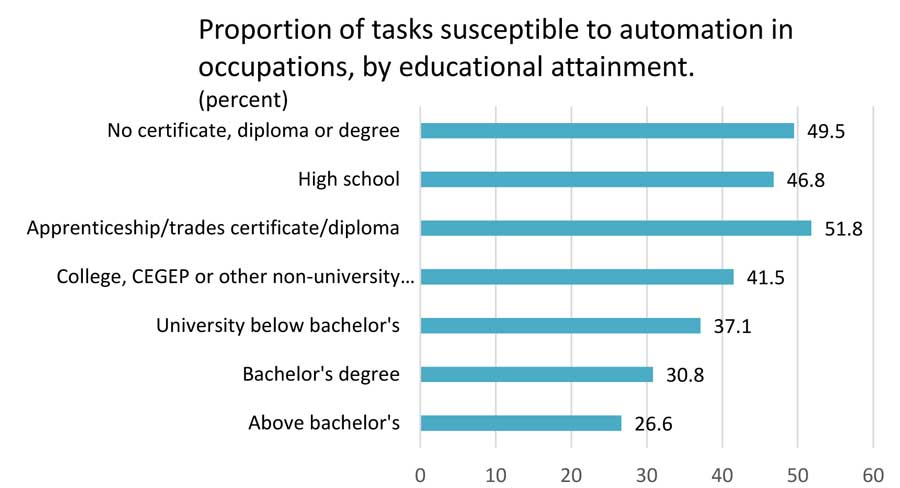Skills and talent
Universities equip Canadians with skills for today and tomorrow.
Spotlight on
Learn how Ontario Tech University’s Automotive Centre of Excellence is driving world-leading research and development in a rapidly changing automotive industry here.
Learn about the cybersecurity certificate program launched by Mount Royal University and York University to prepare students for one of the world’s fastest-growing technology fields here.
Building resilience
Universities are innovating in teaching and learning, providing crucial hands-on and international learning experiences, and helping Canadians at every stage of their careers forge new pathways to opportunity.
 Source: Upskilling and Reskilling: Examining Universities’ Role in Mid-Career Worker Resilience in the New Age of Work by Dan Munro.
Source: Upskilling and Reskilling: Examining Universities’ Role in Mid-Career Worker Resilience in the New Age of Work by Dan Munro.
Job-ready graduates
Work-integrated learning programs, like co-ops, internships and practicums provide students with experience working in their field and the opportunity to start building their professional networks before entering the job market. Universities support the call by the Canadian Business/Higher Education Roundtable for access to work-integrated learning for 100 percent of Canadian postsecondary students.
-
93%of WIL graduates are employed
93% of students who participated in work-integrated learning were employed after graduating with 91% finding jobs related to their studies.
-
74%benefit from work-integrated learning
74% of bachelor’s students who participated in a work-integrated learning opportunity said it helped them find a job after graduation.
-
5.6Kwork-integrated learning programs
80 universities across Canada offer over 5,600 work-integrated learning programs (including co-ops, apprenticeships and internships).
Keeping Canada’s workforce competitive
International learning experiences equip students with the 21st century skills they need to adjust to the shifting nature of work – abilities like problem-solving, adaptability, collaboration and communication with people from other backgrounds. Canada’s business leaders know these competencies give them an important competitive edge.
-
62%of study abroad participants found career direction
62% of participants found studying abroad provided direction for their post-graduation plans.
-
84%found increased global networks
84% of study abroad participants increased their professional network outside of Canada.
-
89%feel more adaptable
89% of study abroad participants feel more adaptable in diverse contexts due to their international experience.







